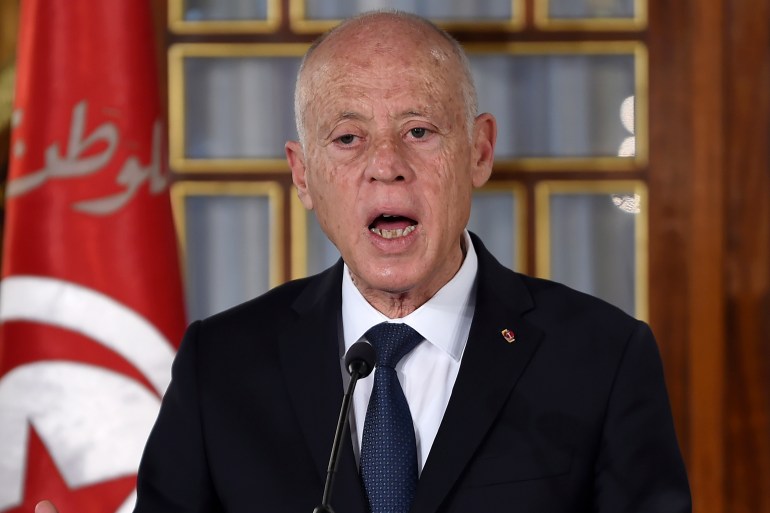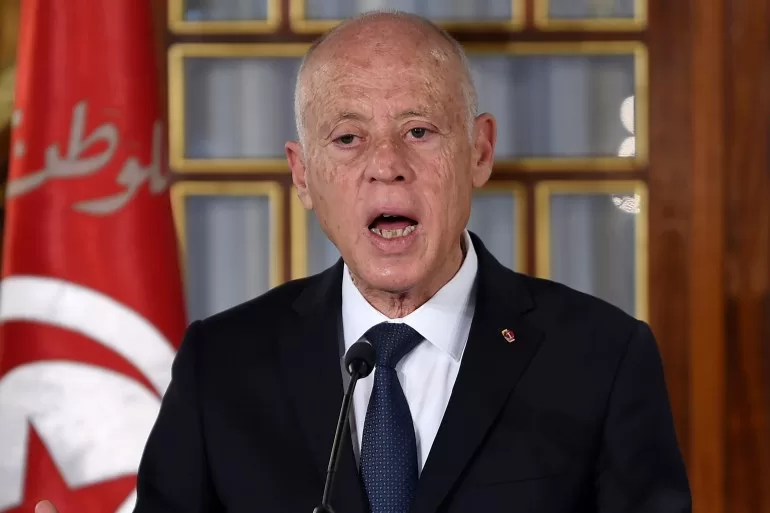Ghannouchi’s Ennahda Party is accused of receiving foreign funds as President Kais Saied continues crackdown on opposition.
The trial court, which specialises in financial corruption, also fined Ennahda $1.1m for receiving foreign funds, TAP said on Thursday.
Ghannouchi’s son-in-law Rafik Abdessalem, a former foreign minister, was sentenced to three years in jail as well.
A former speaker of the Tunisian parliament, Ghannouchi, 82, was arrested last year and sentenced to one year in jail on separate charges of incitement.
Rights groups previously denounced Ghannouchi’s detention, accusing the government of President Kais Saied of repressing political opposition.
Last year’s sentence was handed to Ghannouchi in absentia because he refused to appear before the court, arguing that the charges against him were political.
“Tunisian authorities are increasingly using repressive, vaguely-worded laws as a pretext for repression and to arrest, investigate and in some cases prosecute dissidents and opposition figures,” Amnesty International said in 2023.
“The sentencing of Rashed Ghannouchi shows a growing crackdown on human rights and opposition and a deeply worrying pattern.”
Over the past years, Tunisian authorities have arrested several prominent opposition figures as Saied pushed to consolidate power.

Elected in 2019, Saied – a former law professor – froze the Tunisian parliament in 2021 and subsequently dissolved the legislature to rule by decree. Tunisia held legislative elections in late 2022 that were mired by low turnout amid an opposition boycott.
Earlier that year, Saied successfully pushed a constitutional referendum that expanded the powers of the presidency.
Critics have decried Saied’s power grab as a “coup” that risked bringing the country back to the authoritarianism of the pre-2011 uprising that toppled longtime Tunisian leader Zine El Abidine Ben Ali.
“Since his power grab, Saied largely undermined the independence of the judiciary in an effort to subjugate judges and prosecutors to the executive branch,” Human Rights Watch says in a fact sheet about Tunisia.
“The authorities have escalated their crackdown on political opponents and perceived critics for their peaceful activism or public criticism of the president, the security forces, or other officials. They have stepped up arbitrary arrests, travel bans, and prosecutions, sometimes in military courts.”
But Saied has said that his policies aim to fight corruption and incompetence in the government.
Ennahda had emerged as one of Tunisia’s largest parties after the 2011 uprising, and Ghannouchi led a power-sharing agreement with late President Beji Caid Essebsi to transition the country to democracy.
Last year, the Tunisian government closed down Ennahda’s headquarters in Tunis.
